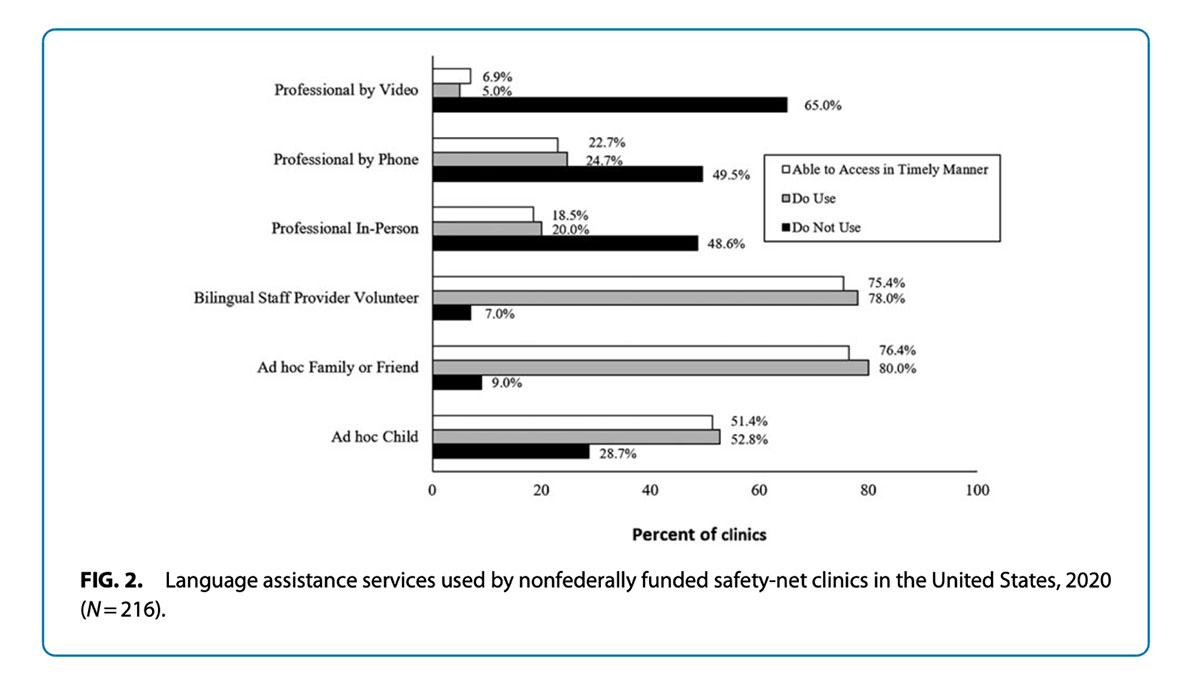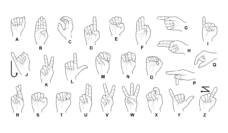Millions of people in the U.S. have limited English proficiency (LEP) and require language services to communicate with their doctor. Federally-funded health care providers are required to offer qualified interpretation or translation services at no cost. A severe interpreter shortage already impacts the most well-funded health care facilities, so how do clinics without federal funding get by?
Professional language services are often provided through third-party agencies and can cost anywhere between $45 and $150 an hour for in-person interpreting and several dollars per minute for telephone and video-remote interpreting. Non-federal free, charitable, and faith-based clinics are not required to provide and often cannot afford professional translation services. They rely instead on ad hoc interpreters, such as bilingual staff, patient relatives, and volunteers.
Vicki L. Densen and Janessa M. Graves surveyed 207 free and charitable clinics about providing language assistance to LEP patients. As seen in the figure, the researchers found almost 50% do not use professional interpreters at all, and the majority of clinics rely on bilingual staff and ad hoc family members. Only 11% of the surveyed clinics were able to offer interpreter training for staff and volunteers.
Relying on ad hoc, untrained interpreters without medical interpreter training may introduce dangers to the patient’s safety. The patient with limited English proficiency may not receive the right care if the interpreter doesn’t understand medical terminology or relays information incorrectly. Additionally, not all physicians are trained in interpreter relations which could further widen the language barrier.
Incorrect interpreting may perpetuate health disparities disproportionately in the free clinic sector that provide care to already underserved communities. There is a pressing need to address the rapidly rising demand for interpreters so that all patients can communicate with their doctor and receive competent and well-informed care.
Databyte via Vicki L. Densen, Janessa M. Graves, Language Assistance Services in Nonfederally Funded Safety-Net Medical Clinics in the United States, Health Equity, 2022.














